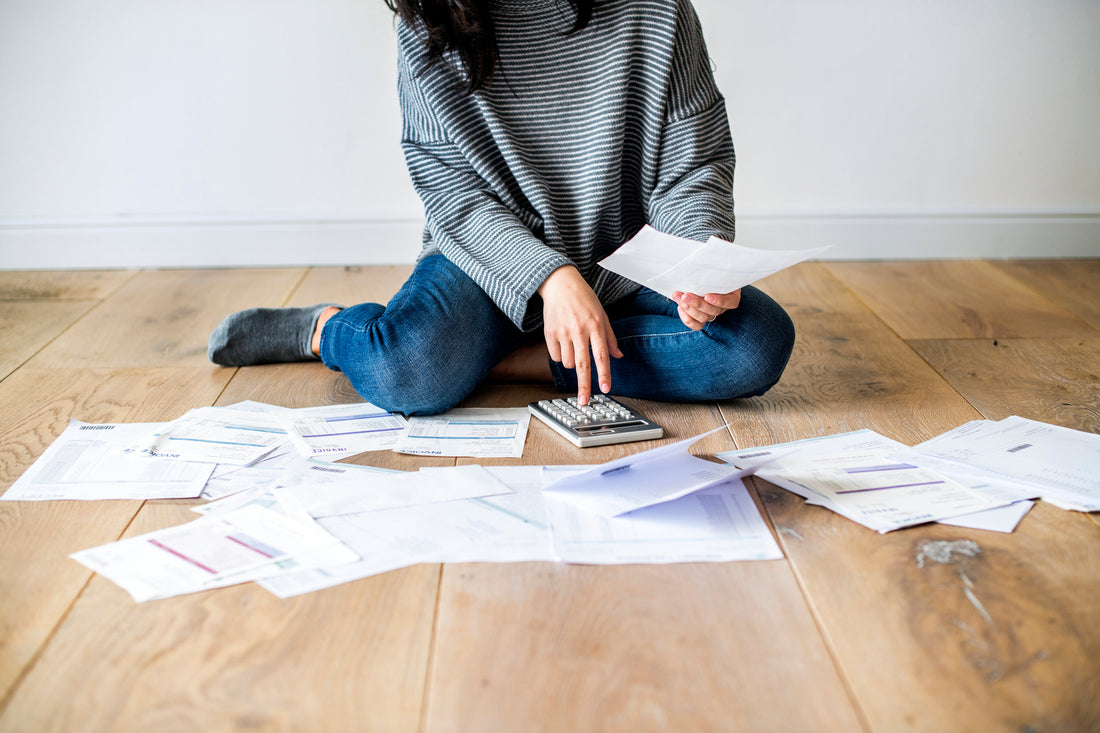
iStock IMG #990947798_1
Bills Are Coming In
Dr. Linda Hancock![]() So, you spent too much for Christmas (again!) and all the bills are making you nervous. Following are some ideas about how to get out of the financial problem that you have created:
So, you spent too much for Christmas (again!) and all the bills are making you nervous. Following are some ideas about how to get out of the financial problem that you have created:
- Don't ignore them! - It will not help to put unopened envelopes into a drawer or to hide them from your partner and yourself. The bills will not go away and, in fact, interest will increase what you owe. If you wait too long, you will have collection agencies begin chasing you and they are relentless!
- Set Up a System - When the mail arrives, shred everything that you don't need immediately. Open the bills and highlight the interest rate being charged, the amount that is due and the date that it is due. Immediately write the cheque or enter the payment into your online banking. Make sure that you allow a few days for processing or mailing so that your payment isn't late or you will face penalties.
- Get rid of the high interest first - It might not seem like much to read that you are being charged 2% monthly but that is way over 24% when you consider that you will be paying interest on interest unless you pay the entire balance off right away. Pay the most on the bill that has the highest interest rate.
- Pay at least the minimum due - Never miss a payment even if it means that you can only pay the minimum at this time. When you are late, you not only will be penalized but your credit rating will be affected negatively. That means your reputation is jeopardized and you might not be able to borrow in the future.
- Talk to creditors - If you call your credit card company, you might be able to convince them to lower your interest rate. When your request is denied, ask for a supervisor. Also, it is better to be upfront with the person who trusted you with their money. Explain your situation. Do not "pretend" things are good and then give them an NSF cheque as both his and your banks will charge you a fee and the creditor will lose respect for you.
- Learn to pay cash - Life used to be a lot easier. If your pockets were empty, then you knew that you didn't have any money! When you pay cash for things, it is psychologically and physically easier to know where you are at with your finances.
- STOP spending - Check out your pantry and your closet. You probably don't need any more clothes and, if you are creative, you could probably make meals for days without having to go shopping. Make sure that you understand the difference between "need" and "want". Then ensure that your needs are given priority and that there is a realistic plan in place where you only purchase your wants when you have saved the money to pay for them.
- Don't think that bankruptcy will solve everything - When you file for bankruptcy, you will have financial and time commitments that you might not want. It is far better to learn financial planning skills than to develop a pattern of spending and then trying to get out of trouble!
One of the biggest mistakes that I see with clients who have financial problems, is that they don't have a plan and then they end up spending more than they have coming in. It's time to learn some good strategies so that this doesn't keep happening!
